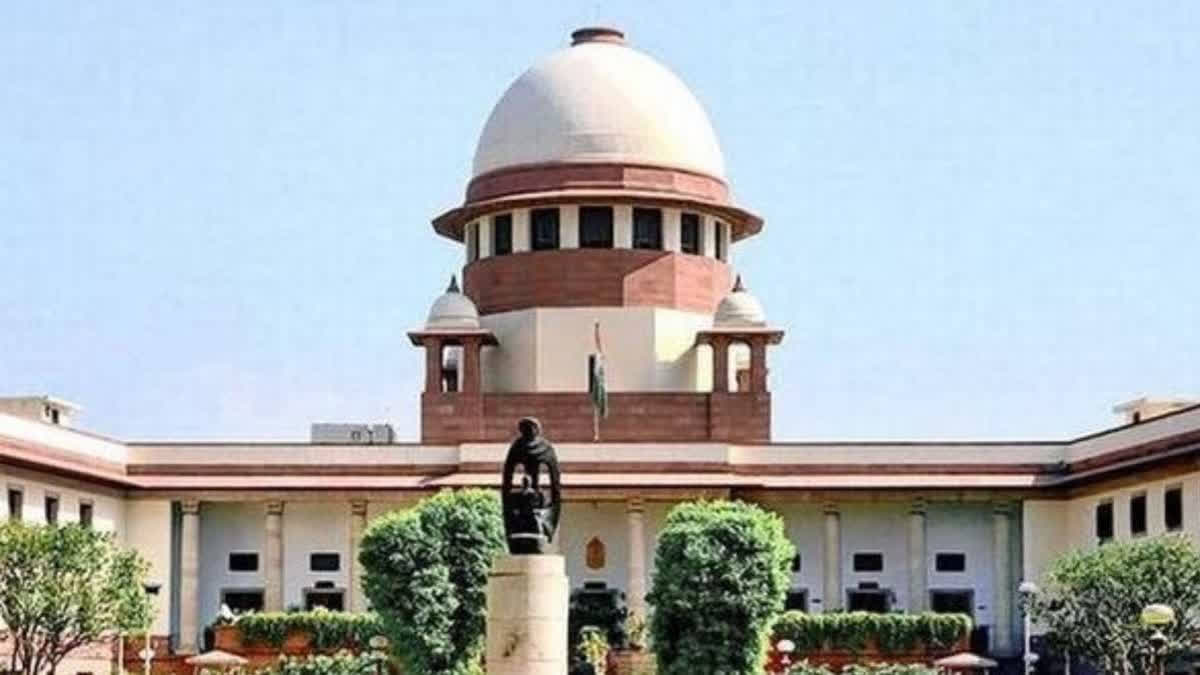New Delhi: The Supreme Court on Wednesday said that the right to life and liberty guaranteed under Article 21 of the Constitution cannot be overlooked only due to the reason that criminal cases have been registered against a person while quashing a case against three persons under the stringent UP Gangsters Act.
A bench comprising Justices Sudhanshu Dhulia and Ahsanuddin Amanullah said: "The right to life and liberty guaranteed under Article 21 of the Constitution of India cannot be overlooked only due to the reason that criminal cases have been registered against a person".
"It would be plainly unwise to accord any unfettered discretion to the authorities concerned when it comes to invoking the Act. The more stringent or penal a provision, greater the emphasis and requirement for it to be strictly construed," said Justice Amanullah, who authored the judgment on behalf of the bench.
The bench said the cases against persons in which the Uttar Pradesh Gangsters & Anti-Social Activities (Prevention) Act, 1986 Act was invoked cannot be run-of-the-mill, but must be serious. "The severity required for the underlying case(s), we think, ought not to be judicially strait-jacketed as a lot would turn on the specific peculiarities of each case," said the bench.
The top court set aside the January 17, 2024 order of the Allahabad High Court which declined to quash the FIR against three persons: Jay Kishan, Kuldeep Katara and Krishna Katara. The bench said the three criminal cases (CC) which find reference in the FIR invoking UP Gangsters Act, would at a glance exhibit a certain vagueness.
The petitioners’ moved the top court on the premise that three predicate FIRs were in connection with the property dispute between two families and the allegations were civil in nature. They sought quashing of the proceedings under the Act.
Justice Amanullah said, "Scrutiny of the cases cited in the FIR to invoke the Act against the appellants prima facie reveal that the same substantially relate to and/or emanate from certain property and monetary transactions. The said transactions are primarily civil in nature”.
The bench said no doubt, addition of various Sections of the IPC in the three CCs may come under the ambit of the offences specified in Section 2(b) of the Act. "However, undoubtedly, mere invocation of certain Sections of the IPC could not and would not preclude the Court from, in a manner of speaking, lifting the veil, to understand what actually lies beneath the material, which is sought to be made the basis for invoking the Act," said the bench.
"The same would not meet the threshold requirement to enable recourse to the Act. Obviously, the allegations in the CCs are yet to be adjudicated finally by a competent court. We may hasten to add that not for a minute are we to be misunderstood to mean that the Act cannot be invoked basis pending cases. Of course, it can be," said the bench.



